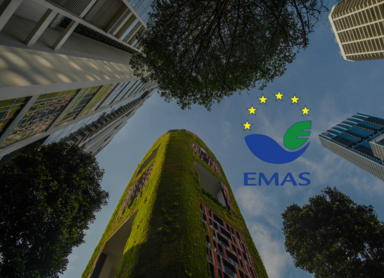Why is it worth being an eco-friendly company? A business guide
We focus on ecology. We are eco. Business can support ecology." These are just a few examples of slogans that have been increasingly prevalent in recent years. It's no wonder. Climate and environmental issues are becoming more and more apparent, even when looking from the perspective of business management, whether it's a large or small company.
Why should you join the ranks of businesses that can say, "we are an eco-friendly company"?
First and foremost, because every eco-conscious company works for the benefit of us all. This should be the primary criterion for any business deciding to make environmental aspects a key component of its development strategy.
It's also long been known that good products and an appropriate pricing policy are not the only factors that attract customers or business partners. The key word: trust, has become increasingly important over the last few years, not only in B2B offerings but also in B2C operations. Trust is built in many ways, but companies that care about the environment, communicate these efforts, and demonstrate eco-friendly practices gain trust and credibility with a growing group of consumers. Priceless attributes for any brand.
An eco-friendly company and brand image
Authenticity is the key word. In today’s world, any superficial or embellished actions quickly backfire on those who attempt them. Fortunately. Being a company that can be called an eco-friendly company automatically enhances the brand's image as positive and professional, both in the business community and among consumers.
It’s hard to talk about a professionally managed company that ignores environmental aspects and eco-friendly practices, yet still aims to grow its business, collaborate with key partners, or work with local governments. Image is also crucial when implementing joint projects with NGOs, local communities, and the broader environment in which the company operates. An eco-conscious approach to business is now also important to a growing number of employees who are aware of how environmental degradation threatens their lives and the future of their children. The company’s image is a key element of running a business.
For several years now, companies' eco-friendly actions have been one of the most important image factors, regardless of the company’s size, industry, or whether CSR or ESG aspects are regularly reported or addressed only partially with no detailed strategy.
Eco-friendly actions in the company – practical steps for implementation
Start by reviewing your company's actions in the 3R areas. This is the foundation of any eco-friendly company. 3R stands for REDUCE, REUSE, RECYCLE. Regardless of the company’s industry, these are the basic steps toward consciously reducing, for example, the amount of waste or the operating time of energy-intensive devices, effectively managing resources, and creating or using recycled products.
Simple actions, such as paying attention to water and electricity consumption, separating waste, and reducing paper use, are also steps toward reducing the company’s carbon footprint and the amount of pollution released into the atmosphere.
Running a business with respect for the natural environment cannot and should not end with these daily yet important tasks. That’s why an increasing number of companies have been actively involved for years in CSR programs, developing initiatives aimed at protecting or supporting the environment. Many companies successfully engage employees, local communities, and partner with various NGOs in these activities. A quick search for information about your region will surely lead you to initiatives involving tree planting, forest cleanups, financial support for environmental campaigns, and other activities that allow businesses to say, "yes, eco-friendly actions are important to us."
Regardless of the number and quality of initiatives undertaken, there is still a huge potential to implement actions that can truly contribute to environmental protection and enhance or strengthen the company’s eco-friendly image.
In recent months, one particularly significant factor that companies have embraced is optimizing electricity consumption by fully switching to renewable energy sources. There are various ways to achieve this goal. Some companies choose to purchase and install their own energy sources, but most simply sign new contracts to buy electricity from providers that guarantee its origin from renewable sources. The growing interest in such contracts is evident on platforms like reo.pl, and from our perspective, this is an action that greatly enhances the image of any business that wants to be labeled an eco-friendly company. More importantly, purchasing green energy for your company is a huge support for the environment and one of the most significant factors in reducing the carbon footprint of most businesses.
In some industries, incorporating eco-friendly solutions into product strategies, such as using sustainable materials or packaging, is a crucial factor in building a company’s eco-friendly image and can also bring long-term financial benefits. Many companies, by making significant changes, not only contribute to environmental protection but also gain economic advantages in the long run.
Implementing eco-friendly solutions in business is extremely important because it helps improve air quality, access to clean water, and, consequently, healthier food. All of this ultimately translates to a better quality of life for all of us and future generations. The role of business in environmental protection is key and multifaceted. But we live in a time when fewer and fewer companies are wondering why they should be eco-friendly and are instead implementing solutions that allow them to use valuable business terms like "eco-friendly company" or "eco-company."







